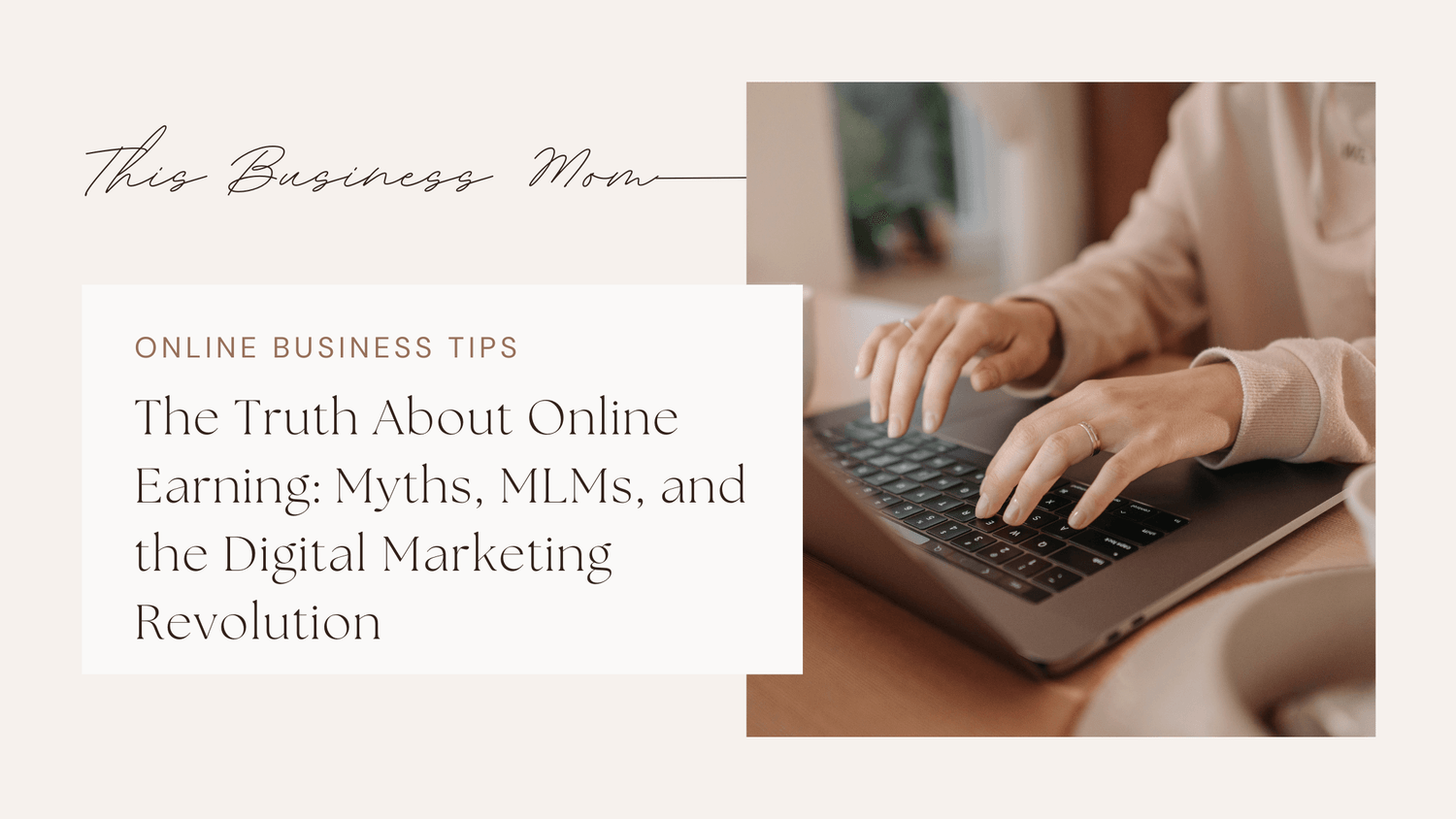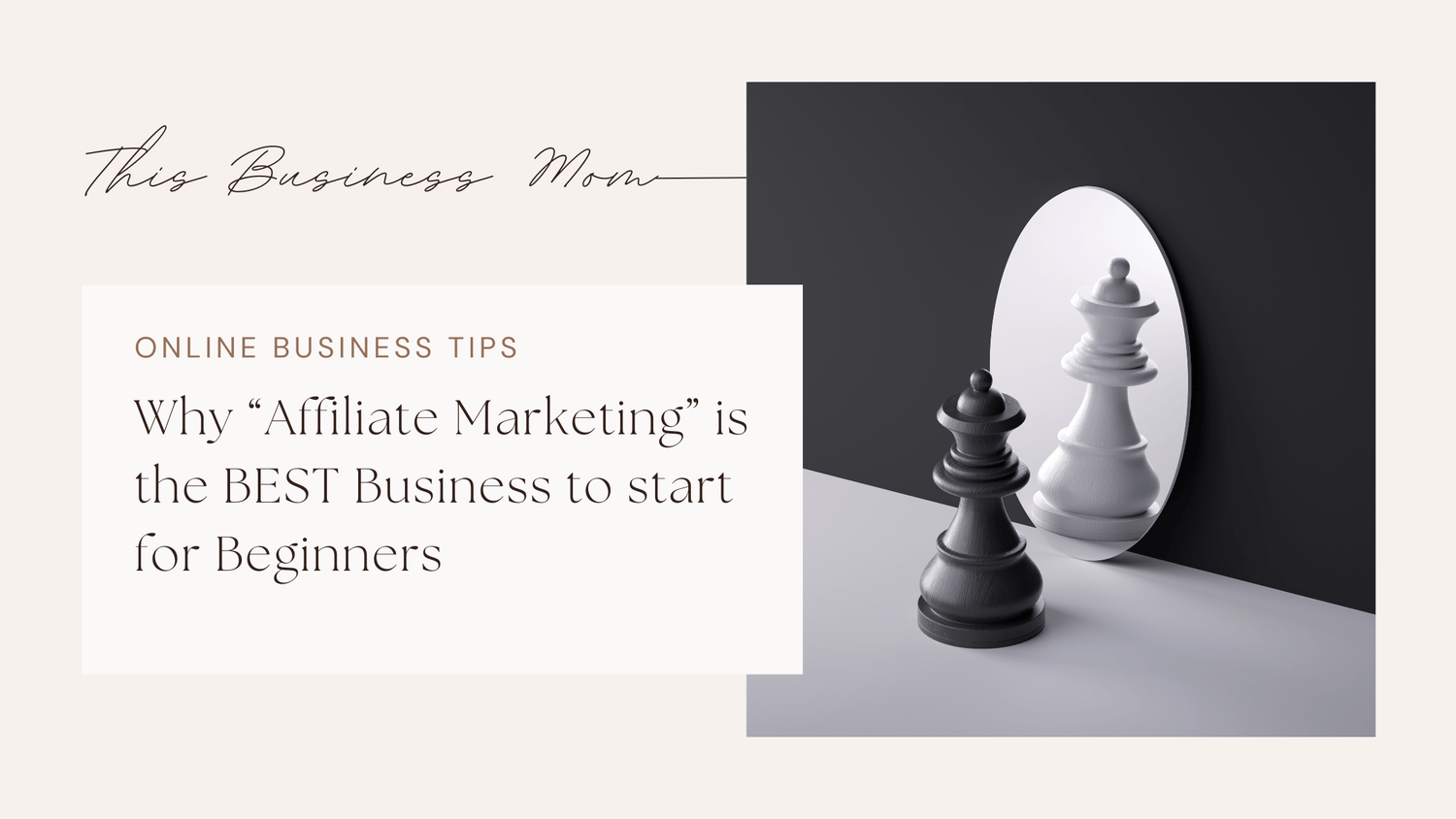
How to Find Profitable Affiliate Programs in Any Niche
How to Find Profitable Affiliate Programs in Any Niche
(Even If You're Just Getting Started)
Let’s be real: choosing the right affiliate program can feel like spinning a giant wheel and hoping it lands on money.
I’ve been there—Googling “best affiliate programs” only to end up more confused than when I started. If you're feeling overwhelmed, this blog is your clarity check.
I'm going to walk you through exactly how to find affiliate products that actually make sense for your brand—ones you love, that pay well, and that your audience will be excited to buy.
Step 1: Choose Affiliate Products You Believe In
(Because Energy Sells More Than Strategy)
Rule #1 of affiliate marketing: if you wouldn’t buy it, don’t promote it.
This isn’t about throwing links around and hoping someone clicks. It’s about alignment. Trust. Energy.
Here’s your checklist:
Do I actually use or love this product?
Would I recommend this to a friend or client?
Does this brand have a solid reputation and good reviews?
Before you even look at the commission rate, look at the vibe. Look at the mission. Look at the product itself.
When you genuinely love what you’re sharing, people feel that—and that’s what gets clicks, conversions, and loyal followers.
Step 2: Understand Affiliate Commission Structures
(Because Not All Products Pay the Same)
Once you’ve found products that align with your values, it’s time to look at the numbers.
🧠 Digital Products (courses, software, memberships)
Best for: Higher commissions, lower overhead
Typical payout: 30%–70%
Bonus points: Recurring commissions or upsells
Pro tip: Look for tools or courses with a passionate community—you’re not just selling a product, you’re inviting people into a transformation.
📦 Physical Products (Amazon finds, supplements, gadgets)
Best for: Easy entry, impulse buys
Typical payout: 2%–10%
Watch out for: Small commissions on big platforms (like Amazon)—you’ll need high volume to see results.
✈️ Travel or Experience-Based Offers
Best for: Lifestyle or travel bloggers
Typical payout: 5%–15%
Important: Timing and seasonality matter here. Align offers with when your audience is actively planning trips or experiences.
💼 Service-Based Products (apps, software, coaching programs)
Best for: High trust, recurring income
Typical payout: 20%–50%
Tip: Services with a free trial or demo convert better because they let people test before they invest.
Step 3: High Ticket vs. Low Ticket Affiliate Offers
(Both Can Make You Money—If You Know How to Play Them)
Let’s bust another myth real quick: you don’t need high-ticket offers to be profitable. You just need the right strategy.
🛍️ Low-Ticket Products (under $50)
Pros: Low barrier to entry, easier to sell
Cons: You’ll need higher volume to make real income
Best used for: Gift guides, resource round-ups, tools you use every day
Perfect if you’re just starting out and want to get some early wins under your belt. People are more likely to try a $27 product than a $997 course.
💎 High-Ticket Products ($200 and up)
Pros: Big commissions = fewer sales needed
Cons: Higher trust threshold, longer buyer journey
Best used for: Offers you’ve personally used, with strong back-end support
With high-ticket affiliate marketing, your content matters more. Your emails, your stories, your breakdowns of the transformation—it all helps your audience feel safe investing.
Bonus Tip: Test, Track, and Trust the Process
You probably won’t pick the “perfect” affiliate program on your first try. That’s okay.
Test what works. Pay attention to what people are clicking, buying, asking questions about. Let your audience's behavior guide your choices.
And most importantly—stay in integrity. Promote things you genuinely believe in. That’s the brand you're building.
Frequently Asked Questions
What is a good affiliate commission rate?
For digital products, 30%–70% is excellent. For physical products, 5%–10% is common. Always weigh the payout against how easy it is to sell and how aligned the product is.
Are digital or physical products better for affiliate marketing?
Digital products often pay more and scale easier. Physical products are easier to start with because they are easier to show on camera. Choose based on what your audience needs and trusts.
Can I start affiliate marketing without a following?
Yes. Focus on building content that ranks in search (blogs, YouTube) or building trust through email and social platforms. Your following will grow with your value.
Ready to Start Making Money with Affiliate Marketing?
Click here to grab my free guide to affiliate marketing
It’s beginner-friendly, easy to follow, and packed with real tips that actually work—no fluff, no scams, just strategy that aligns with who you are.
Because making money online doesn’t start with a product.
It starts with clarity, connection, and a little courage to try.
SHARE
POST CATEGORY







